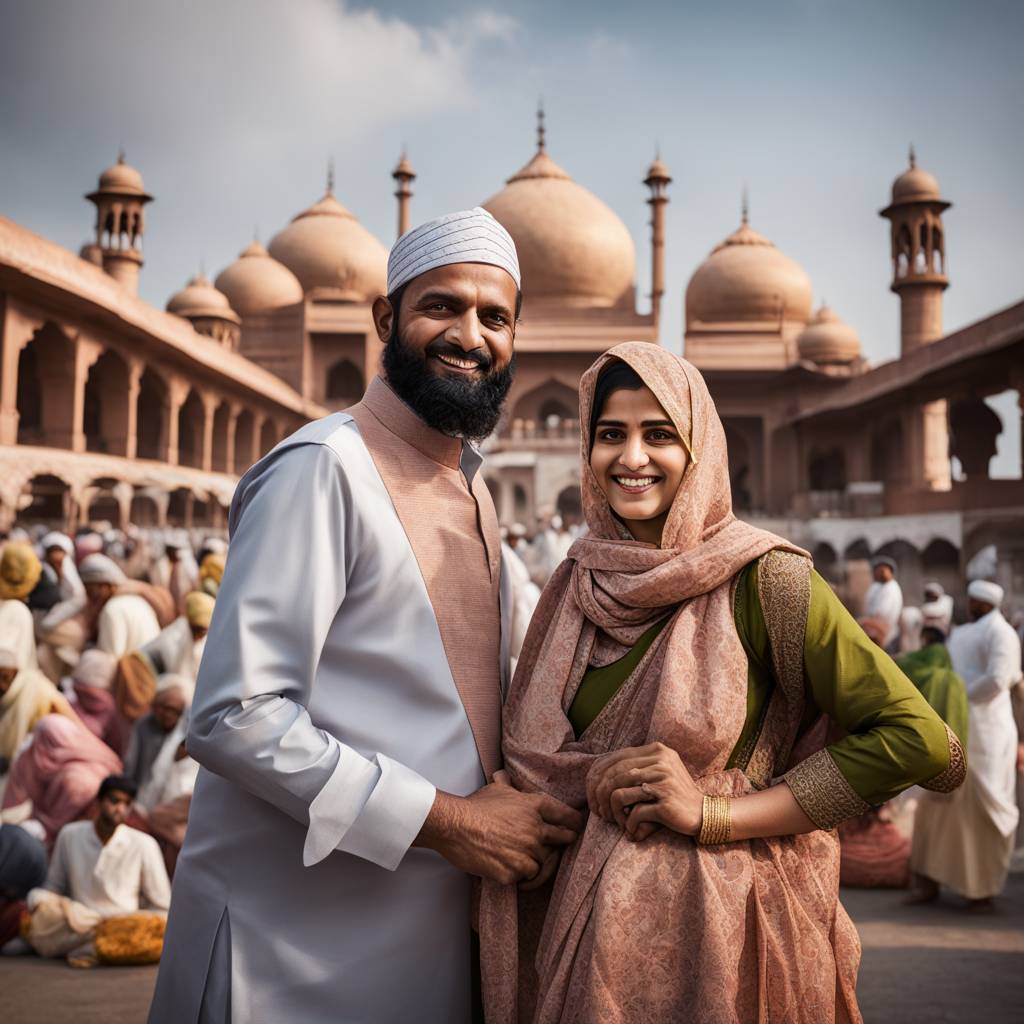a Party (BJP) as inevitable, despite the concerns of minority communities. In Rampur, the BJP candidate won by a significant margin in the last election, reflecting the broader trend of the party’s dominance in the region. The Muslim residents of Rampur, however, feel increasingly marginalized and persecuted under Modi’s government, which has implemented policies perceived as discriminatory against religious minorities. Despite this, the BJP’s appeal remains strong, particularly among the Hindu population, who believe in Modi’s promise of economic development and national security.
Religious tensions in Rampur have been exacerbated by the BJP’s promotion of a Hindu-first agenda, which has led to the targeting of Muslims by right-wing Hindu groups. The rise of vigilantism and mob violence against religious minorities has created a sense of fear and insecurity among the Muslim community, who feel increasingly isolated and vulnerable. The BJP’s hardline stance on national security and border issues has also fueled anti-Muslim sentiment, with many Muslims being unfairly associated with terrorism and labeled as threats to the country’s unity. As a result, the relationship between the Hindu and Muslim communities in Rampur has become increasingly strained, with instances of communal violence occurring periodically.
Despite the challenges faced by the Muslim community in Rampur, their political representation remains limited, with only a few Muslim politicians holding positions of power. This lack of representation has further contributed to their sense of disenfranchisement and marginalization within the political system. Many Muslims feel that their concerns are not being adequately addressed by their elected representatives, who are often aligned with the ruling BJP and supportive of its policies. The dominance of the BJP in Rampur’s political landscape has left the Muslim community feeling sidelined and powerless, with little hope of effecting change through the electoral process.
The upcoming election in Rampur is unlikely to bring significant change for the Muslim community, as the BJP candidate is expected to win by a comfortable margin. Despite the discontent and frustration among the Muslim population, the appeal of the BJP’s Hindu-first agenda remains strong, with many Hindus supporting Modi’s government for its perceived strength and decisiveness. The lack of viable alternatives and the BJP’s electoral dominance have left the Muslim community with few options for challenging the status quo, leading to a sense of resignation and apathy towards the political process. As a result, the cycle of marginalization and discrimination against the Muslim community in Rampur is likely to continue unabated.
The situation in Rampur is emblematic of the broader trend of religious polarization and communal tensions in India, where the BJP’s nationalist agenda has deepened divisions between different religious communities. Modi’s government has been accused of promoting a majoritarian agenda that discriminates against minorities, particularly Muslims, through policies such as the controversial Citizenship Amendment Act and the National Register of Citizens. The marginalization of religious minorities in India has raised concerns both domestically and internationally, with critics accusing the government of undermining the country’s secular principles and democratic values. As the political landscape in India becomes increasingly polarized along religious lines, the challenges faced by minority communities like the Muslims of Rampur are likely to persist, unless there is a concerted effort to promote inclusivity and tolerance in the country’s political discourse.
In conclusion, the situation in Rampur reflects the complex interplay of religious identity, political power, and social dynamics in contemporary India. The dominance of the BJP and its Hindu-first agenda has marginalized the Muslim community in Rampur, leading to a sense of alienation and insecurity among its residents. The lack of political representation and the prevalence of communal tensions have further exacerbated the challenges faced by Muslims in the city, leaving them feeling disenfranchised and marginalized within the political system. As the country heads into another election cycle, the prospects for religious minorities like the Muslims of Rampur remain uncertain, with the BJP’s continued dominance likely to perpetuate their sense of exclusion and vulnerability in the face of rising religious polarization and intolerance.













